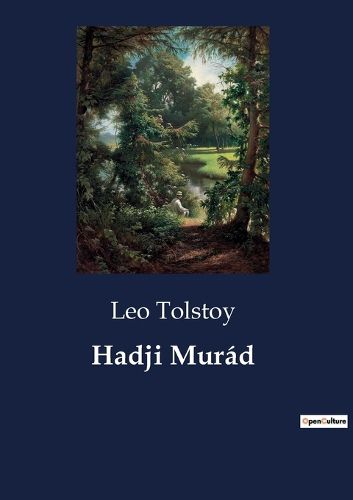Readings Newsletter
Become a Readings Member to make your shopping experience even easier.
Sign in or sign up for free!
You’re not far away from qualifying for FREE standard shipping within Australia
You’ve qualified for FREE standard shipping within Australia
The cart is loading…






In this short novel, Tolstoy fictionalizes the final days of Hadji Murad, a legendary Avar separatist who fought against, and later with, Russia, as the Russian Empire was struggling to annex Chechnya and the surrounding land in the late 1840s. The novel opens with the narrator finding a thistle crushed in a blooming field, which reminds him of Hadji Murad and his tragic tale. As the narrator recounts the story, the reader is quickly thrust into the rich, colorful history of the Caucuses, and its people's fight against Russian imperialism. Hadji Murad is portrayed as a legendary and imposing, yet friendly and approachable figure. Despite his reputation, it seems that his best days are behind him; as the novel opens, Murad is fleeing Shamil, a powerful imam who has captured Murad's family. Murad finds himself thrust between the invading Russians on one side, and Shamil's vengeance on the other. As Murad and his tiny but loyal group of warriors try to forge alliances in their attempt to rescue Murad's family, they quickly find themselves politically outclassed. The Russians are Murad's enemies, yet only they can help him in his struggle against Shamil; and after years of losses incurred by Murad's guerrilla tactics, the Russians would like his help but cannot trust him. Shamil, on the other hand, is a deep link to the region's complex web of tribal blood feuds, vengeances, reprisals, and quarrels over honor. He's one of the few powers left standing between the Russians and their control of the Caucuses, but Murad, having crossed him, can't rescue his family from Shamil's clutches without the help of the Russians. Murad's impossible position, the contradiction between his legendary past and his limping, dignified, and ultimately powerless present, and the struggle against a mighty empire by a people torn by internecine conflict, form the major thematic threads of the novel. The novel was one of the last that Tolstoy finished before his death, and was only publishe
$9.00 standard shipping within Australia
FREE standard shipping within Australia for orders over $100.00
Express & International shipping calculated at checkout
In this short novel, Tolstoy fictionalizes the final days of Hadji Murad, a legendary Avar separatist who fought against, and later with, Russia, as the Russian Empire was struggling to annex Chechnya and the surrounding land in the late 1840s. The novel opens with the narrator finding a thistle crushed in a blooming field, which reminds him of Hadji Murad and his tragic tale. As the narrator recounts the story, the reader is quickly thrust into the rich, colorful history of the Caucuses, and its people's fight against Russian imperialism. Hadji Murad is portrayed as a legendary and imposing, yet friendly and approachable figure. Despite his reputation, it seems that his best days are behind him; as the novel opens, Murad is fleeing Shamil, a powerful imam who has captured Murad's family. Murad finds himself thrust between the invading Russians on one side, and Shamil's vengeance on the other. As Murad and his tiny but loyal group of warriors try to forge alliances in their attempt to rescue Murad's family, they quickly find themselves politically outclassed. The Russians are Murad's enemies, yet only they can help him in his struggle against Shamil; and after years of losses incurred by Murad's guerrilla tactics, the Russians would like his help but cannot trust him. Shamil, on the other hand, is a deep link to the region's complex web of tribal blood feuds, vengeances, reprisals, and quarrels over honor. He's one of the few powers left standing between the Russians and their control of the Caucuses, but Murad, having crossed him, can't rescue his family from Shamil's clutches without the help of the Russians. Murad's impossible position, the contradiction between his legendary past and his limping, dignified, and ultimately powerless present, and the struggle against a mighty empire by a people torn by internecine conflict, form the major thematic threads of the novel. The novel was one of the last that Tolstoy finished before his death, and was only publishe